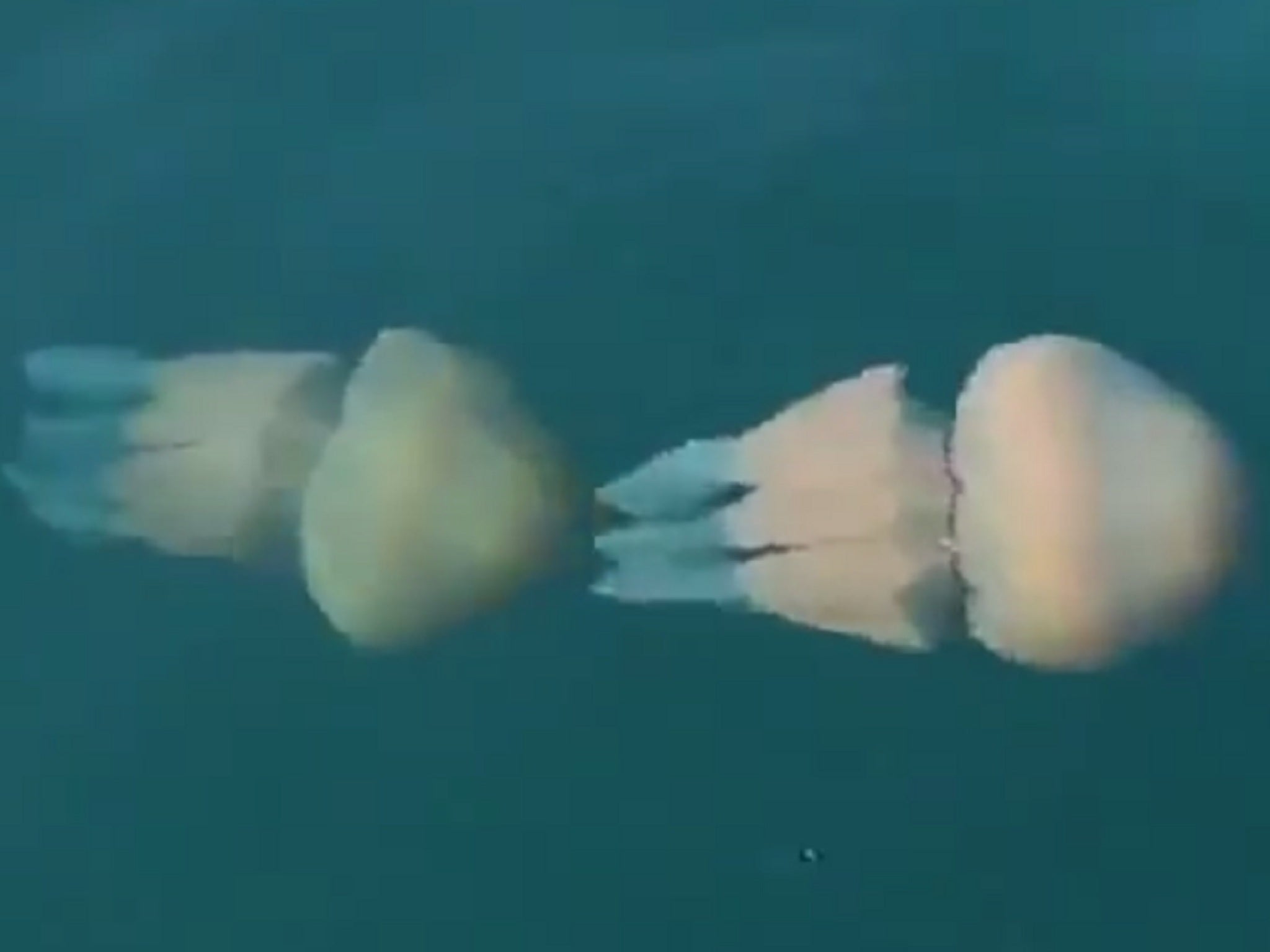Massive barrel jellyfish descending on the UK in record numbers
Experts have admitted that they don't know what is behind the recent rise in jellyfish

Your support helps us to tell the story
From reproductive rights to climate change to Big Tech, The Independent is on the ground when the story is developing. Whether it's investigating the financials of Elon Musk's pro-Trump PAC or producing our latest documentary, 'The A Word', which shines a light on the American women fighting for reproductive rights, we know how important it is to parse out the facts from the messaging.
At such a critical moment in US history, we need reporters on the ground. Your donation allows us to keep sending journalists to speak to both sides of the story.
The Independent is trusted by Americans across the entire political spectrum. And unlike many other quality news outlets, we choose not to lock Americans out of our reporting and analysis with paywalls. We believe quality journalism should be available to everyone, paid for by those who can afford it.
Your support makes all the difference.Huge barrel jellyfish have been spotted in record numbers in the UK, experts have warned.
The Marine Conservation Society says that jellyfish sightings are continuing to rise in the UK, with 1,000 of the animals being spotted so far this summer, before the peak month of August.
Large numbers of mauve stingers were reported off Guernsey in July and a potentially dangerous Portuguese ‘Man of War’ has was found washed up on beaches in Devon and Cornwall.
The society has called for more research into why the numbers are rising, as experts are currently at a loss as to what is behind the phenomenon.
Dr Peter Richardson, biodiversity and fisheries programme manager at the Marine Conservation Society, said: “Our National Jellyfish Survey suggests significant recent rises in the numbers of some jellyfish species in UK seas, most notably the barrel. The million dollar question is- why is this happening? At the moment we just don’t know.
“We believe there is now a need for the UK Government to commission dedicated scientific research and monitoring to answer pressing questions about what is happening to jellyfish numbers, why it is happening and what this means for our precious and productive seas.”
Although mostly feared by swimmers and beach-goers for their painful sting, jellyfish have further-reaching environmental and economic consequences. In the UK, large blooms of mauve stinger jellyfish have wiped out salmon stocks in fish farms, incurring huge financial losses.
With additional reporting by PA
Join our commenting forum
Join thought-provoking conversations, follow other Independent readers and see their replies
Comments